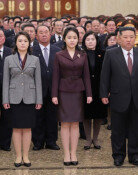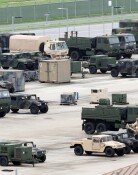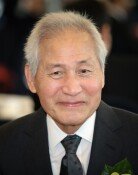Government Infrastructure Charge Could Raise Apartment Prices
Government Infrastructure Charge Could Raise Apartment Prices
Posted October. 06, 2005 07:16,
We wont gain any profit this way, said A, a construction company manager, after reviewing the bill for infrastructure facilities proposed by the ruling Uri Party. He was checking out a site to build a building (with a gross area of 5,000 pyeong) with five stories below and five above ground near Seocho-dong, Seocho-gu, Seoul.
If this bill, already coordinated by the government, is passed, his company will have to pay the maximum 9.4 billion won for the charge for infrastructure facilities, which is almost a third of the total working expenses, 30 billion won.
Were going to see how the National Assembly deals with the bill and decide later on whether to proceed with the project or not, he said, indicating that it is highly possible that the company might give up the project if the conditions are found to be unfavorable for the business.
As the calculations included in this bill promoted by the government and the ruling party are revealed, several construction companies and reconstruction associations expressed a strong objection against the bill.
They argued that the bill will be a double burden because next year, the charge for development will be resurrected, levying them to pay the maximum 25 percent of development interests.
The same case can be applied to B, who was planning to build an office building (with a gross area of 4,000 pyeong) in Jamsil, Songpa-gu.
After his employee reported to him that he might have to pay the maximum 5.4 billion won for the charge for infrastructure facilities, he put a hold on the project to purchase the site. I must do something about this, like sue the government, he said.
In the case of reconstruction apartments, association members will have to pay the charge. It is estimated that apartments in the Gangnam area will be charged 20 million won per household.
Take the Yeongdong AID apartments in Samseong-dong, Gangnam-gu for example. If a reconstruction association member who owns a 15-pyeong unit moves into a 32-pyeong unit, it is expected that the member will have to pay 18 million won in infrastructure facilities charges.
Yun Yeong-seok, the head of the Seongbo apartment association (Yeoksam-dong, Gangnam), argued that a charge of tens of millions of won per household is clearly a case of reverse discrimination since 25 percent of the total gross of the reconstruction apartments is already provided for public rental housing, and five percent of the land is given for the use of roads.
Yun is planning to submit the opinion regarding the bill by association members to the National Assembly.
The government commented that currently it is not considering reduction of the charge for infrastructure facilities.
We expected such opposition from the rich. The charge for infrastructure facilities will bring various favorable influences, such as preventing reckless city development and creating comfortable living conditions, according to Lee Jae-young, head of the Headquarters for Balanced Territorial Development under the Ministry of the Construction and Transportation.
However, many worry that the charge will only raise apartment prices since construction companies will put the burden of the charge on their customers.
Seung-Heon Lee ddr@donga.com




![전기매트 틀고 자면 몸에 전자파 쌓인다?” 직접 측정해보니 [알쓸톡]](https://dimg.donga.com/c/138/175/90/1/wps/NEWS/IMAGE/2026/01/02/133079758.3.jpg)


